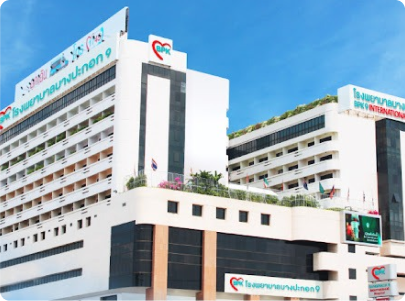Lymphoma
Treatment strategies for Lymphoma often combine advanced diagnostics, surgery, chemotherapy, immunotherapy, and personalized care plans to target malignant growths effectively. Recovery focuses not only on removing cancer cells but also on restoring overall health and emotional strength.
Get Expert Consultation
Speak with our medical travel experts to get personalized guidance for your procedure
✓ No commitment required • ✓ Expert guidance • ✓ Free consultation

Book Your Free Medical Consultation
Get expert advice—free and easy. Just fill out the form to start your health journey!
Key-Insights for
Lymphoma
Procedure Time
The length of treatment varies depending on the type and stage of lymphoma, but most treatments last several months to a few years.
Recovery Period
Most people can return to their normal activities within a few weeks after treatment ends. Some may need more time based on the intensity of their treatment.
Expected Results
Relief from symptoms, improved quality of life, and potentially cured or controlled disease
Ideal Candidates
People diagnosed with lymphoma, such as Hodgkin or non-Hodgkin lymphoma, who are seeking effective treatment options
Lymphoma
Treatment strategies for Lymphoma often combine advanced diagnostics, surgery, chemotherapy, immunotherapy, and personalized care plans to target malignant growths effectively. Recovery focuses not only on removing cancer cells but also on restoring overall health and emotional strength.

People seek these procedures for various reasons:
Aesthetic Enhancement
To alleviate symptoms such as fatigue, fever, and weight loss
Corrective Purposes
To improve quality of life by reducing disease progression
Functional Restoration
To potentially cure lymphoma and restore overall health
Things to Check Before Treatment
- •Discuss any medications or supplements with your doctor to determine if they need to be stopped before surgery.
- •Inform your doctor about any allergies, medical conditions, or previous surgeries that may affect the procedure.
- •Ensure you have a plan in place for follow-up care and appointments after returning from abroad.
- •Check the country's regulations regarding blood transfusions, if required, during the procedure.
- •Verify the qualifications and experience of your surgeon and anesthesiologist.
Potential Risks
- •As with any major surgery, there is a risk of bleeding or infection.
- •Lymphoma treatment can cause side effects such as fatigue, nausea, and hair loss.
- •There is a small risk of organ damage during the procedure.
- •The risk of complications increases if you have other underlying medical conditions.
- •You may experience numbness, tingling, or pain at the surgical site.
How to Choose the Right Country, Clinic, and Surgeon
Do's
Verify surgeon credentials (e.g. ISAPS, JPRAS)
Ask for before-after photos
Check language barriers
Review aftercare and follow-up options
Consider local laws on medical malpractice
Don'ts
Don't Choose a Clinic Based Only on Price
Don't Rely Solely on Social Media or Influencers
Don't Ignore Language Barriers
Don't Rush Into Surgery Without Research
Don't Assume You Can Fly Back Immediately
CureMeAbroad Services Are Absolutely Free.
You pay same rates for treatments as in the hospital's original price list.
CureMeAbroad Services Are Absolutely Free.
You pay same rates for treatments as in the hospital's original price list.


Book Your Free Medical Consultation
Get expert advice—free and easy. Just fill out the form to start your health journey!
Lymphoma
Frequently Asked Questions
This procedure involves specific medical techniques tailored to address particular health conditions. Your doctor will explain the detailed process based on your case.

Help Me Plan My Treatment Abroad
End to End Treatment Planning Specifically curated as per your need. Just a Call away


Help Me Plan My Treatment Abroad
End to End Treatment Planning Specifically curated as per your need. Just a Call away


Book Your Free Medical Consultation
Get expert advice—free and easy. Just fill out the form to start your health journey!



